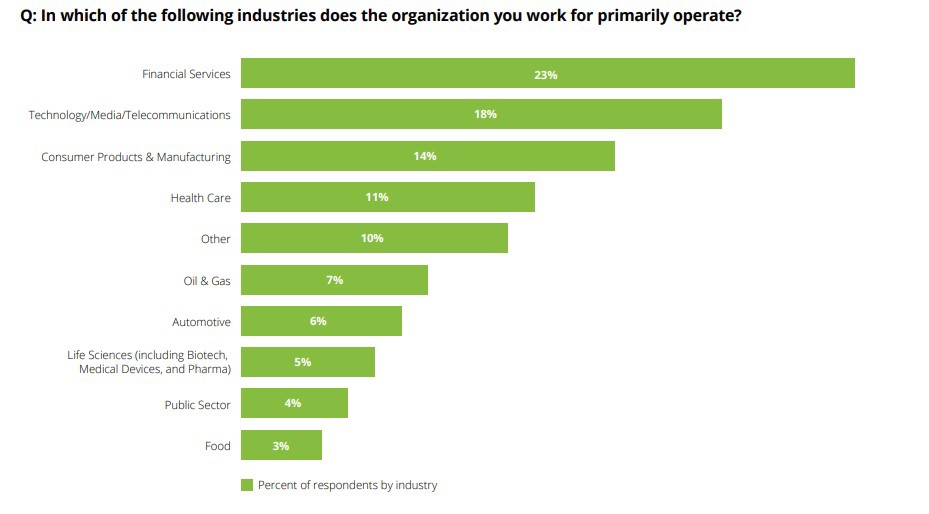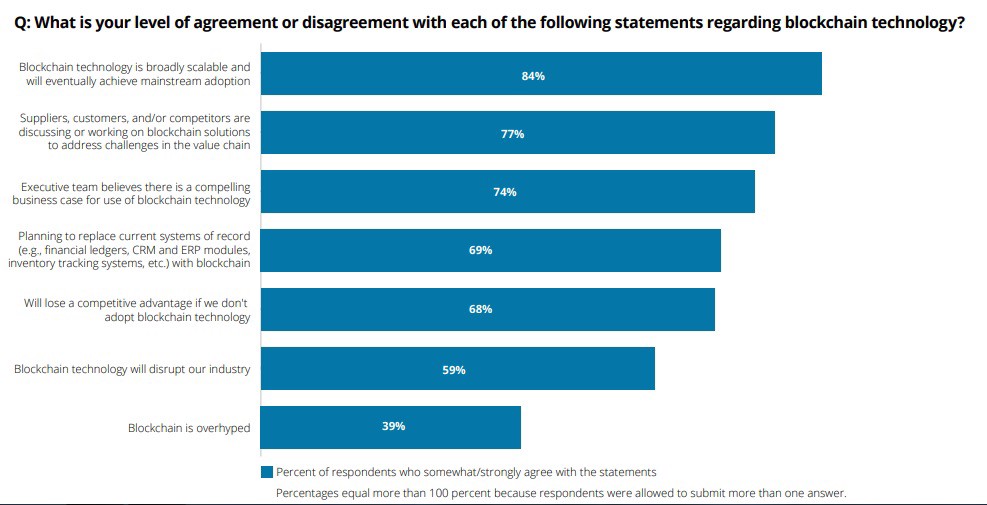The future of the IT industry belongs to Blockchain applications

Studies conducted by leading audit companies Deloitte, KPMG and PricewaterhouseCoopers indicate that the business is looking towards blockchain solutions with great interest. Companies are ready to invest in decentralized applications (dApps). However, the demand for blockchain applications exceeds both the capabilities of the current blockchain infrastructure, as well as the number of developers available at the market. Read the Electus review to find out how dApps turn from geeks’s toys into mainstream technology.
Blockchain became mainstream
Electus has already paid attention to the study of the leading audit company Deloitte, which polled 1,050 managers of large companies with annual revenues of at least $500 million. In 2019 about 23% of them are ready to invest in decentralized applications (dApps) from $5 million to $10 million. Another 16% are ready to invest more than $10 million and 30% - up to $ 1 million. Industries in which the companies operate are as follows:

It is interesting that only 5% of surveyed managers do not plan blockchain investments at all. 84% of respondents consider blockchain to be a perfectly scalable technology, which mass adaptation in the future.

What amounts of investment can we talk about? Even if you count only 1,050 companies that participated in the Deloitte survey and take the average check for an investment of $ 2-3 million, in 2019 the dApps development industry will attract more than $2 billion. Taking into account companies that did not participate in the survey will give a much larger amount. Some researchers expect that by 2025 the investment will grow to $25 billion.
Judging by the statistics, blockchain becomes mainstream. However, the business notes important constraints. They are mentioned in the PWC study, which interviewed 600 companies from all over the world. PWC notes that the advantages of blockchain will allow the business to generate up to 3 trillion of additional profits by 2030. Business also understands this, however, there are difficulties in implementing business processes. So, already 84% of companies are interested in blockchain, but only 15% of them have fully working solutions. The majority conducts development and research of technology, or have frozen introduction because of the arisen complexities. The main obstacles for the implementation of decentralized applications are regulatory uncertainties, incompatibility of various blockchains with each other and the already existing infrastructure.
Staff deficiency
According to developers of decentralized applications, the development is hindered by both the shortage of qualified personnel, and their high cost. This opinion is confirmed by billionaire Mike Novogratz , one of the world's leading investors in blockchain and cryptocurrencies. According to him, there left 5-6 years before the mass adoption of blockchain. Staff deficiency is one of the main problems.
However, universities and private schools are trying to fill this niche. Blockchain courses are opened everywhere. The Financial Times notes that blockchain educational programs have become a trend for leading business schools and universities. "It happens much faster than people expected. Business schools have no choice but to update their curricula, " David Yermack, professor of finance and business development at New York University, said in a commentary for the publication. According to him, the number of those wishing to take a blockchain course at his university has doubled over the past year. Robert Wardrop, director and co-founder of the Cambridge Center for Alternative Finance, told the publication that the largest corporations, including Amazon, Google and Microsoft, are showing great interest in such specialists. Understanding such a segment as asset tokenization on a blockchain can have a revolutionary impact on the financial sector, the expert believes.
Judging by the current trends, in the coming years the development of decentralized applications will create high demand in the IT industry and thousands of jobs. To keep up with the current trends and earn, the companies engaged in development need to take care of the search and training of specialists already today.
The topic of blockchain application development is very broad. One article is not enough to describe all the trends of the market. We will devote several publications to this issue and we will tell you which applications are already actively changing the business, how blockchain and dApps will change the world of finance and public administration. A separate topic will be devoted to blockchain education - how to become a developer of dApps and where you can get the special knowledge.
Andrey Mastykin, Analyst of Electus
https://t.me/ELECTUS_CRYPTO